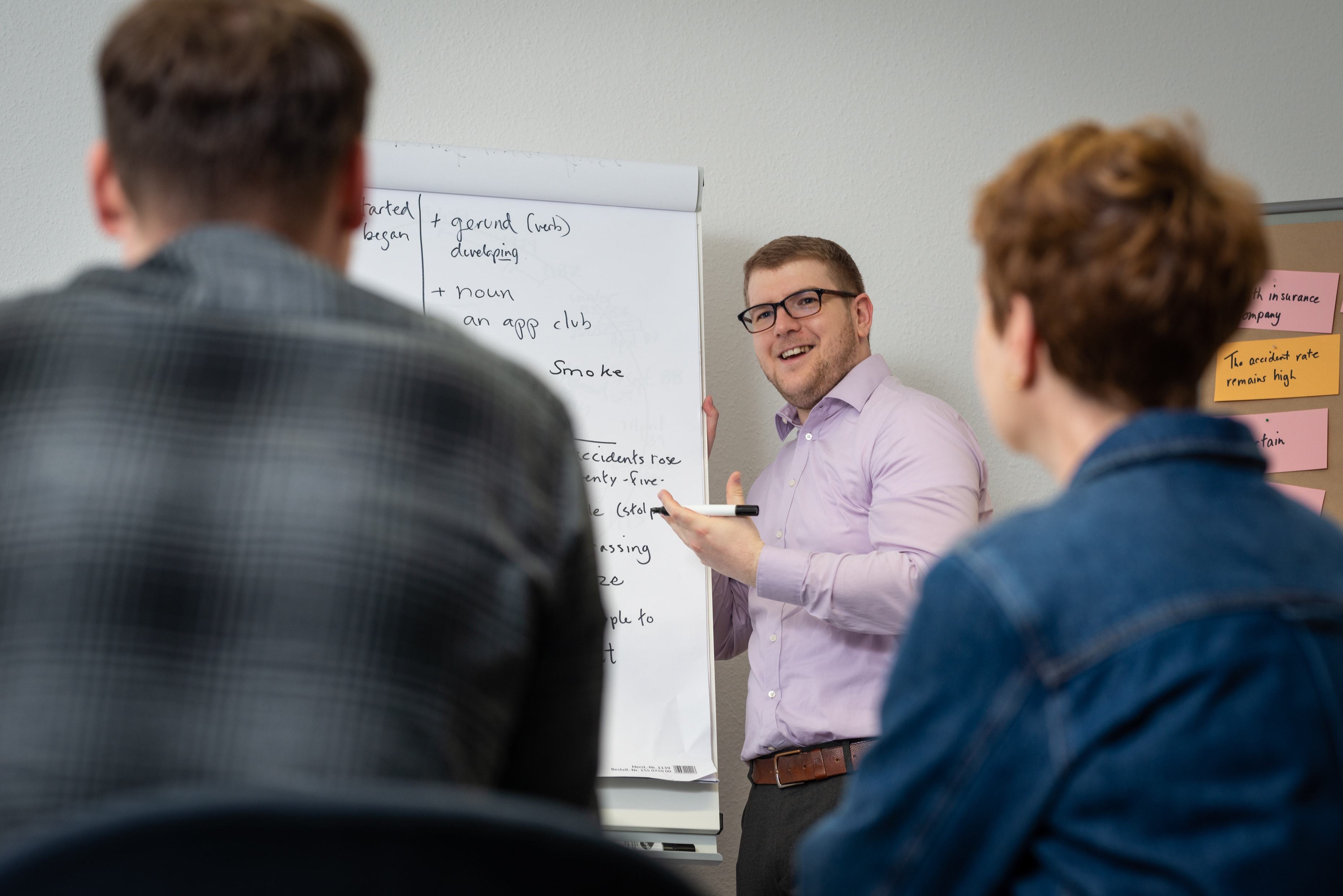
Academic Workshops
Dealing with Conflict
“10 % of conflicts are due to difference in opinion. 90 % are due to the wrong tone of voice.“
In working life and thus also at the university, conflicts are not unusual. Resolving them constructively can help to create an open and trusting atmosphere in many situations. At the same time, however, there is a risk that conflicts will hamper collegial relationships, cooperation, and thus productivity. It is therefore crucial to recognize and understand conflicts in their different forms, especially in multilingual teams.
Our experienced trainers conduct all workshops in English or German. Get to know our Communication Trainers and our Academic Coaches.
Contact Us
Tel. 040 46 88 22 47
Email: info@intercom-language.de
Content of the Workshop
- Defining and understanding conflicts
- Differentiating between constructive and problematic conflicts
- Recognizing your own way of resolving conflicts
- Effective negotiation with the aim of achieving a solution acceptable to all parties
- Learning techniques for solving conflicts, finding compromises and allowing for different points of views
- Understanding your own coping strategy and assertive performance
- Positive and negative effects of language and body language
- Identifying cultural differences and their impact on conflicts
- Role play with trainer and group feedback, in order to put the theory into practice
Required English Language Skills
CEF level B2 / C1 or above
We offer a short online test to ascertain the respective language level of the participants. This is helpful but not a must.
Target Group: Undergraduates or PhD students who have to speak a lot of English and wish to improve their ability to deal with conflicts.
Number of Participants: Up to 10 participants
Duration: 1-2 days
Objectives
In this workshop, the participants will deal with personal conflicts in their respective work environment and will examine different types and triggers. The aim is to transform the emotional situation into a shared, objective dialogue. Participants learn how to resolve exisiting and future conflicts with composure, thus attaining positive results. In addition, they practice their ability to initiate difficult conversations and to achieve satisfactory solutions.